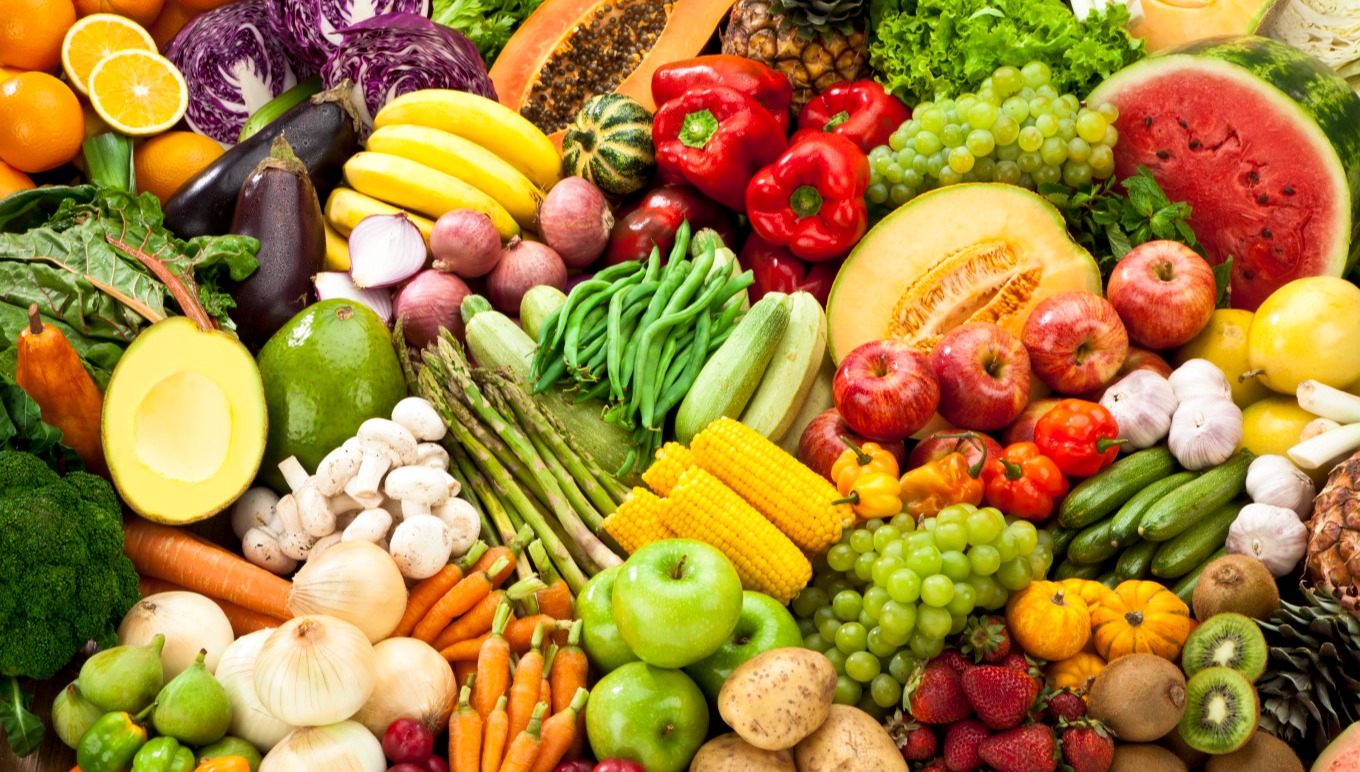Realizing Data-Driven Improvement in Fresh Produce Businesses
Realizing Data-Driven Improvement in Fresh Produce Businesses
Realizing Data-Driven Improvement in Fresh Produce Businesses

Farming and fresh produce cultivation practices have changed drastically over the years. From the domestication of working animals to the creation of advanced irrigation systems and the invention of fertilizer, the field has seen its fair share of change over time.
What’s the next big breakthrough in the industry? Will it be hydroponic growing systems, which promise incredible efficiency and a more sustainable future? Or will it be the further development of genetically modified organisms so that they’re even more resistant to pests and inclement weather?
In fact, the answer might be much simpler. The vast wealth of data that can be captured and recorded in fresh produce operations holds incredible value, as it can yield high-level insights to make better results across your entire supply chain.
Whether or not your business will be able to realize the full benefits of your data will be a matter of getting the right technology on your side. Keeping track of facts and figures by hand or even in a digital spreadsheet won’t be enough—you need a dedicated fresh produce enterprise resource planning (ERP) system.
To demonstrate how vital and transformative ERP can be for fresh produce companies like yours, let’s examine five key areas in which these solutions drive improvement.
1. Traceability and Compliance
Organizations in the fresh produce sector frequently have supply chains that stretch across multiple countries. This further complicates the already difficult task of tracking all of your products and materials from origin to destination and ensuring that your facilities and goods are within compliance.
ERP platforms simplify the process of collecting and updating your traceability information by integrating with your smart sensors and scales and automating all critical information capture procedures. Source, weight, freshness dates, even appearance—all can be accounted for and revised as necessary without any of your employees even having to initiate the process.
Advanced systems, like Aptean's fresh produce ERP, are designed with industry best practices in mind and can be configured to suit the compliance regulations of your country or region. They also can automatically schedule your compliance checks, making sure that everything’s the way it should be in case of an audit.
2. Quality Control
The automatic data capture that produce ERP solutions offer can also greatly improve your business’s quality control efforts. Besides maintaining freshness dates to ensure that all of your products arrive at market at the peak of their viability, ERP can also integrate with AI-powered imaging systems to evaluate items based on appearance and weed out those with damage, discoloration or unsightly blemishes.
Deviations from your predetermined acceptable ranges are flagged by the system so that your staff can act quickly and remove any products that aren’t up to your standards. That’s vital considering consumers are far more discerning than they were in the past and want to be able to trust in the brands they buy from.
You’ll also be able to leverage historical data to analyze larger trends in your harvests and shipments so that you can evaluate growing methods and suppliers accordingly. For example, if an entire season’s worth of one crop ended up underweight, you’ll be able to dig into the details and find out exactly what might have caused that aberration so that it can be prevented in the future.
3. Yields and Wastage
Getting the most out of your raw materials is crucial for profitability, so you always need to scrutinize your yields and try to find ways to squeeze just a little more out of what you put in. Food and beverage ERP solutions provide excellent yield analysis tools with robust visualizations that will help you truly understand both your successes and shortcomings.
Preventing unnecessary waste is an obvious way to boost your yield metrics, and food ERP can cover you on this front as well. Examination of all the automatically collected information will make clear where the wastage is occurring, whether it’s in transport, handling or traveling down your production lines. From there, you can address the matter with a combination of training, better packaging solutions and revisions to current procedures.
One final way that wastage can occur in fresh produce is the simple inevitability of spoilage. While it’s true that all fresh products have limited viability, you want to make sure yours arrive at retail comfortably within an acceptable range. Fresh produce ERP systems can not only retain and track this information for you but also inform your picking and shipments to make sure that items with less time left are prioritized over those that will last longer.
4. Demand Forecasting
The fresh produce industry is seasonal by nature and sees periodic fluctuations in both supply and demand throughout the year. There’s clearly nothing your company can do to prevent this, but you can get ahead of the game with the forecasting tools that ERP solutions offer.
Planning for future production is much easier when you can utilize features that are specially designed to take several factors into account at once, including historical data, sales records and consumer trends. Good demand forecasting will also contribute to your waste reduction efforts, as you’ll be far less likely to end up with more of a certain product than you can sell before it goes bad or passes out of season.
By aligning your production with reliable and dependable estimations formed by intelligent tools, you’ll be on target to strike the right balance and meet market demands without ending up with wasted, unsellable goods.
5. Costing
As a food and beverage segment, fresh produce is unique for the different challenges it poses. One of those is costing, and it makes sense that this exercise is more complex in the sector—when you start from a seed planted in the ground, proceed through resource-intense processes like growing and harvesting and then factor in shipping and distributing efforts, a lot goes into any individual item, and that makes finding the right price point a challenge.
Once again, the data that fresh produce ERP platforms collect along the way will make the matter much easier. Because ERP are cross-functional, combining and connecting all of the data from your different departments, you can dive deep into the costs associated with certain harvests and lots and adjust your pricing model according to the desired margin.
The historical sales data that the system captures will also be of use when it comes to evaluating which of your lines is profitable and at what price points they are considered desirable by consumers. The process is a continual one—because there are so many variables involved, what’s true one season may not be true the next—but with all of the pertinent facts and figures in front of you, you’ll be prepared to make the most informed, confident decisions possible.
Becoming a Data-Driven Organization
These are just a few of the ways in which the power of data can be harnessed to great effect in your fresh produce business. And while your people will continue to be your biggest asset, there’s no doubt that the regularity and precision of information capture and analysis that’s necessary is best left to technological tools designed specifically for those purposes.
Implementing a fresh produce ERP at your organization won’t be an overnight process—true digital transformations can take years—but a full return on investment normally takes only 9 months, and you’ll be enjoying the benefits as soon as it goes live. It’s key, however, that you select an offering that was built for companies like yours and designed to tackle the concerns that are specific to the industry.
With decades of experience in the space and the most complete solutions on the market, Aptean makes an ideal partner for your journey. What’s more, Aptean's produce ERP was built on the foundation of Microsoft Dynamics 365, so it integrates nicely with all of Microsoft’s apps and has a familiar, simple presentation that your employees will pick up quickly.
Finally, the versatility of our offerings is a major differentiator, with cloud-based deployments and automatically applied updates that keep your uptime and agility at a maximum. And our teams are highly capable of guiding you through the process.
Want to hear more about our fresh produce ERP and how it can help your business take full advantage of the data in front of you? Contact us today.
Ready to tackle the fresh produce industry?
We bring the features you need to navigate the complexities of the fresh produce industry.



 Jack Payne | Vice President, Product Management & Solutions Consulting
Jack Payne | Vice President, Product Management & Solutions Consulting